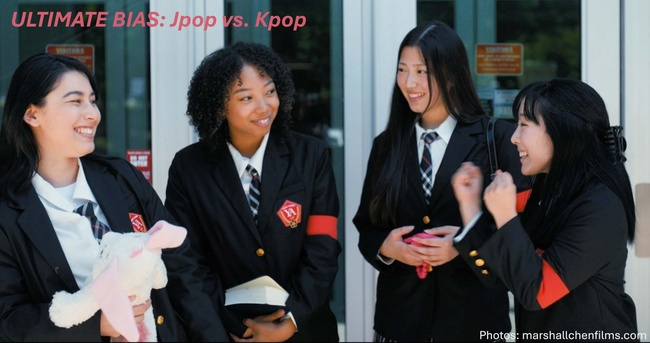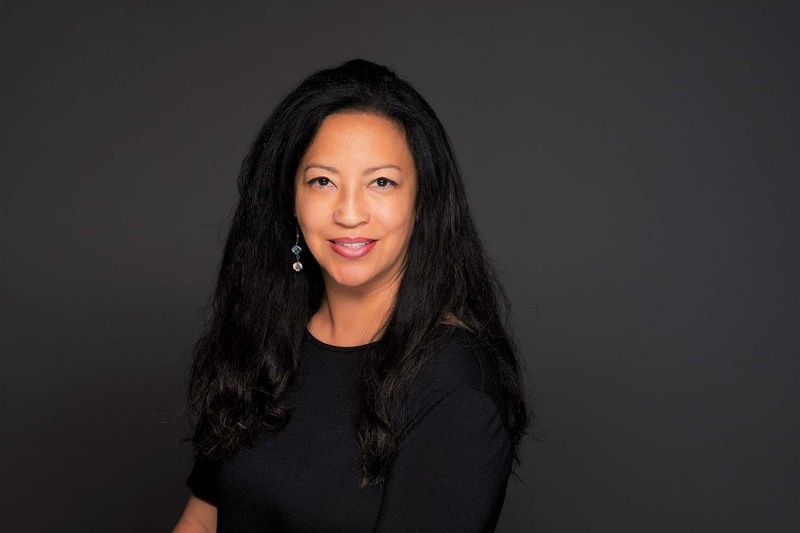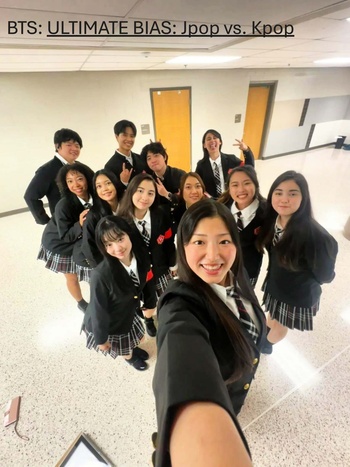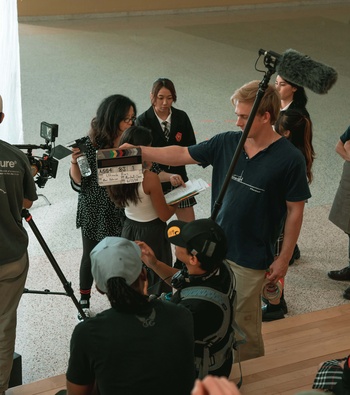Movies have long held unique power: to not only entertain but also give a “reality check” for the things getting conveniently ignored. They reflect our triumphs and our failures, our deepest fears and brightest hopes. Movies have a knack for showing us who we are, sometimes more clearly than we see ourselves.
Filmmaker Mari Robinson understands this power and has used it as a tool for exploring identity, challenging perceptions and promoting self-acceptance in her latest film, Ultimate Bias: Jpop vs Kpop. “Film is a way for me to say something, for me to ask people, ‘Hey, do you feel this way too? Have you felt rejected by your own people? Have you felt alone?’” Mari desires to create films that explore universal yet deeply personal questions.
“I was born and raised most of my life in Japan. And so that in itself has its own personal construct of what I believe about who I am.” But her identity isn’t confined to a single label. Mari’s mother was a singer on Polydor Records, and her father was a GI, one of the first to occupy Japan after the war. “There’s some parts of me that are very Japanese in the way I think, and what I’m comfortable with, and how I present myself,” she explains, then adds, “And then there’s another half of me that’s very American.” Her parents’ life story and her intercultural upbringing were the initial sparks for her storytelling.
In regards to her early professional life, from stocks and bonds to entertainment powerhouses like Sony, Nintendo and now Disney, she has been the go-to person for bridging cultural gaps, highlighting her Nikkei and Shin-Issei identity. This proved to be a valuable asset and a leading factor in her decision to depict cultural complexities through film.
The inspiration for Ultimate Bias: Jpop vs Kpop came from a desire to reach teenagers in particular in the hope to address the issues they face, a craving for a sense of belonging, and connection. “Many children have a hard time feeling accepted,” Mari says with concern, “and my film does not have an answer actually. It does not have an answer for a lot of the things I’m showing as everyone has their own unique experiences.”
Instead, she hopes to spark conversation and offer a sense of solidarity. “The film does try to educate people. Education is super important as one of the first steps in understanding something that you may not be familiar with, right?” she states.
The synopsis of the film outlines the story Mari uses to explore these themes. In a strict Japanese immersion school in McLean, Virginia, four ethnically diverse students collide in the Jpop dance team, each battling their own cultural and personal pressures. Misa, the seemingly perfect Japanese “it” girl, struggles under her father’s expectations and a recent heartbreak. Crash, a rebellious Japanese-American, feels like an outsider and suspects a rival Kpop team spy. Sooyun, a Korean girl raised in Japan, faces criticism by her Korean peers for embracing Japanese culture. Jin, an ethnically Black student born and raised in Japan, longs for acceptance.
As they train for a crucial competition, their journey exposes the complexities of cultural identity, the fight against societal norms, and the unifying power of dance. They must overcome their biases and personal struggles to win, discovering themselves and each other along the way. Challenging societal pressures on identity, Ultimate Bias follows these teens’ world as they navigate the path to self-acceptance.
The film arose from Mari’s interviews with Third Culture individuals who, like many high schoolers, struggled with societal expectations to choose an identity based on appearance rather than their true selves. It tackles complex issues like cultural tension between Japanese and Koreans and the struggle for acceptance. To ensure authenticity, Mari insisted on “ethically accurate actors.” “Every single student, background actor, everyone is Japanese because it’s a Japanese immersion school,” she notes, highlighting her commitment to accurate representation.

By casting actors who deeply connect with their characters, like Sanika, who played the character of Jin, a black student born and raised in Japan, Mari was able to capture a depth of authenticity that a conventional casting process might have overlooked. Sanika’s inherent understanding of the culture’s mannerisms and subtleties coupled with her real-life experiences of not being accepted in Japan added a layer of realism to her performance. Likewise, Goshi, in his role as Tok, brought a powerful layer of nuance to the film’s exploration of cultural tensions, drawing from his own experiences as someone of both Japanese and Korean heritage.
Mari recalls that the film, much like the actors who brought their own stories to their roles, was a huge community project. Even with the limitations of a non-profit venture and budget constraints, Mari assembled a dedicated cast and crew united by a shared belief in the film’s message.
This collaborative spirit fostered a sense of community that mirrored the themes of acceptance and belonging explored within the film itself. “Every single actor had a personal experience with either not feeling accepted, not feeling heard or seen,” she recounts. Mari also highlights a pervasive sense of fear that she had to navigate, a challenge particularly pronounced within aspects of Japanese culture. As she notes, “being the first is not a characteristic of Japanese culture,” and this hesitancy to embrace the new or unknown manifested in various ways.
“I feel like the shocker was fear,” Mari states, describing how people’s fear of supporting something unfamiliar created obstacles. This fear wasn’t limited to potential supporters; even a mother of one actor expressed reluctance. Yet, seeing the crew being so open minded and community-oriented, Mari managed to bring everybody on the same page. She fondly describes the set environment characterized by mutual support, where cast members readily helped each other, washed each others’ clothes, teaching Japanese mannerism, taking care of each other like a family.
Many cast members expressed surprise at the deep sense of community they developed on set and how much they missed being together after filming. One actress shared that she had never encountered a film that addressed acculturation—the ability to be oneself within a different culture and to be accepted for it, highlighting Mari’s successful attempt to get the conversation going.
Lastly, while talking about the film’s title, Ultimate Bias: Jpop vs Kpop, Mari explains that “bias has two meanings for me in this film. On one hand, it refers to the biases that the characters navigate. On the other, it’s a nod to K-pop culture, where ‘ultimate bias’ means your favorite.” This clever wordplay is just one example of how Mari blends entertainment with social commentary. She stated that she hoped teens would understand the moral of the story, which was centered on building community with accepting individuals, and that this was the way to navigate biases. Ultimately, it delivers a powerful message: fight for acceptance and learn to embrace who you are inside.
Looking ahead, Mari remains committed to using film as a tool for change. “I want to make films that do help young people to have courage and to feel accepted and feel like they have a say, no matter where they live.” Her vision extends beyond her own background. “I personally do not always make films about my background at all, but I do make Japanese films consistently,” she says, emphasizing her dedication to giving a voice to those who long to be seen, healed, accepted, and to belong.
* * * * *
Ultimate Bias: Jpop vs Kpop is sponsored by Film Independent and accepting crowdfunding donations.
© 2025 Vaishnavi Kulkarni











